
Penguin Brothers
Penguin Brothers
Platform: Arcade
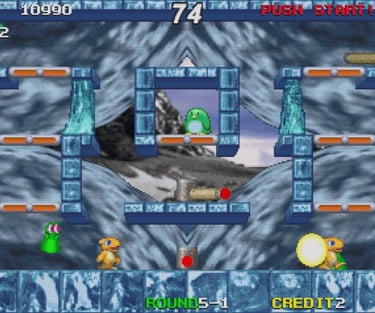

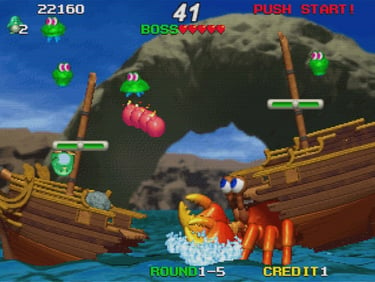

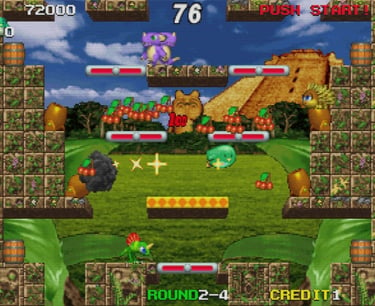

The ‘90s was rife with copycat platformers—Data East’s Tumblepop alone seemed to spawn a legion of insipid releases and bootlegged mimicry. But the early 2000s, in what is often considered the genre’s final gasp, brought a final slew of new, somewhat inspired single-screen platformers. And Penguin Brothers, despite all appearances to the contrary, is a surprisingly clever take on the formula.
The story, told through swaths of dense Japanese, sees two penguin siblings setting out to rescue a whale held captive by a creepy mad-scientist (later revealed to be a devilish pig). The ‘why?’ here isn’t especially clear, just that the brothers better hurry before the whale becomes another experiment gone wrong. Six distinct lands await; from Mayan jungles to volcanic chasms, the penguins must brave an assortment of traps, lab-enhanced monsters and guardian bosses, essentially tossing theirs bombs at everything that moves. Yes, bombs. For whatever reason, the birds are walking arsenals of explosives, and once the sixth location is properly torched, the duo must conclude their journey with a three-stage face-off against the demonic hog himself, using every explosive trick they can muster.
Despite the pyrotechnics, the brothers are unlikely heroes at best; they waddle more than walk, and don’t so much throw their bombs as drop them…dangerously close to their own stodgy feet. Indeed, death comes as much from being caught in one’s own explosion as it does at the hands of enemy characters. Powerups—colored discs retrieved from blasted barrels—further extend the bombs’ reach and double-edged treachery, forcing a more cautious approach than what’s usually common for the genre. Other buffs, such as a long-range “ring-beam” and a set of comically wobbly protective armor, can also be accrued on occasion.
But the game’s main gimmick is less about bombs and more about physics; by hopping through the spinning trapdoors that litter each stage, players can “catapult” their explosives from a safe distance as if manning a see-sawing cannon. Similarly, players can flip through these same hatches for sneak attacks and quick retreats, turning the penguins into a pair of pudgy ninjas. In short, the game is really an exercise in defensive maneuverability, a reality better realized in every stage’s second half—once the last enemy is defeated, a locked exit door appears, forcing players to retrieve and heave a giant key (usually spawned at the opposite side of the screen) while dodging a new set of resurrected monsters. Since the penguins can’t toss bombs and carry an item simultaneously, some shrewd maneuvering is required.
The game is also artistically distinct, with an opening intro that mixes photographic stills and prerendered graphics with hand-drawn art—a style that extends into the game itself. These aesthetic mash-ups are accompanied by an equally eclectic musical score that blends the beats and samples of funky hip-hop with salsa, pop, and more conventional chiptune fare. Add in a twist ending, animated backgrounds, and a map screen of unusually artistic flair, and Penguin Brothers proves itself an unexpectedly good game all around.
Which, strangely, is almost unfortunate; it’s just too good to have been left so discarded. There are dodgy bootlegs and banal pirate-ware games given more recognition and remembrance than this legit, inspired piece of art has ever received.
Which is to say, Penguin Brothers remains woefully unknown. A home console—a budget PSOne or Dreamcast release, or even a handheld (Game Boy Advance?) conversion—would have probably served it best back in the day. But the arcade is where it stayed…seemingly for just a day…before the sea sprays of time washed it from memory like so much ocean foam.
Such is the fate of many games, of course, and their hapless design teams. But, with the help of emulation, this is one platformer that deserves a double-take. And from there, one hopes, a rerelease.—D
Publisher: Subsino Corp. Ltd.
Developer: Subsino Corp. Ltd.
Release: 2000
Genre: Single-screen Platformer


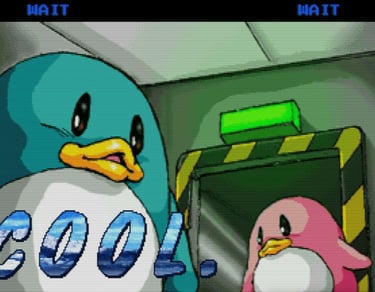

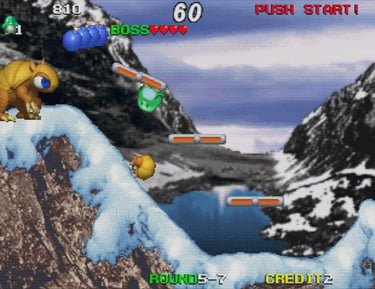

The bosses are inspired and often tricky to defeat. The giant hermit crab above is using a hollowed out ship for its shell--now that's cute!
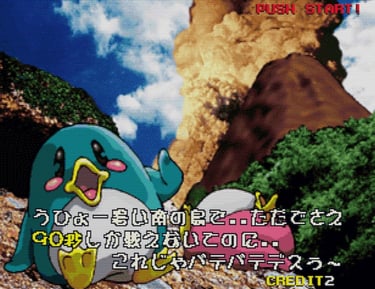

Penguin's cutscenes are also inspired, if awfully weird and meme-ish. Oh, and the brothers love saying "cool" over and over again!
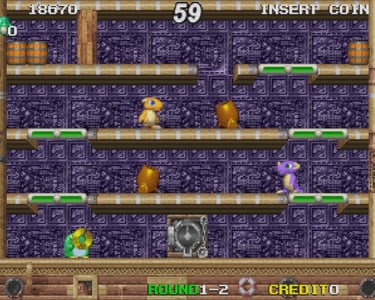

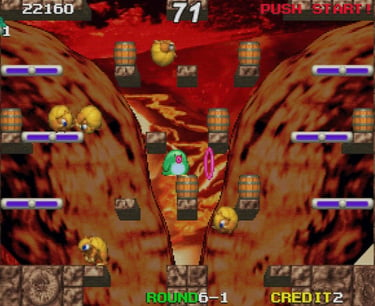

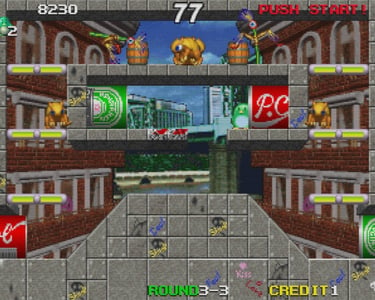

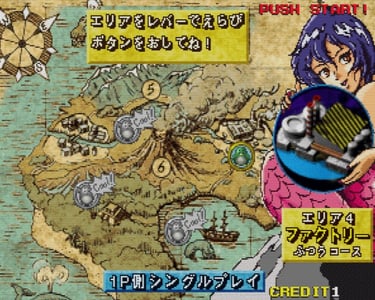

After the baddies are cleared, the Penguin must haul a golden key to the exit door. More enemies, of course, warp in to stop him.
Different levels often sport different gimmicks. Here, these faux soda cans act as portals to other areas of the stage.
The map screen sports its own vintage style.
Contact: lostnostalgiaproductions@gmail.com
Website: www.lostnostalgia.com
Like what we're doing? Please consider throwing us a dollar into our Patreon page's tip jar!


